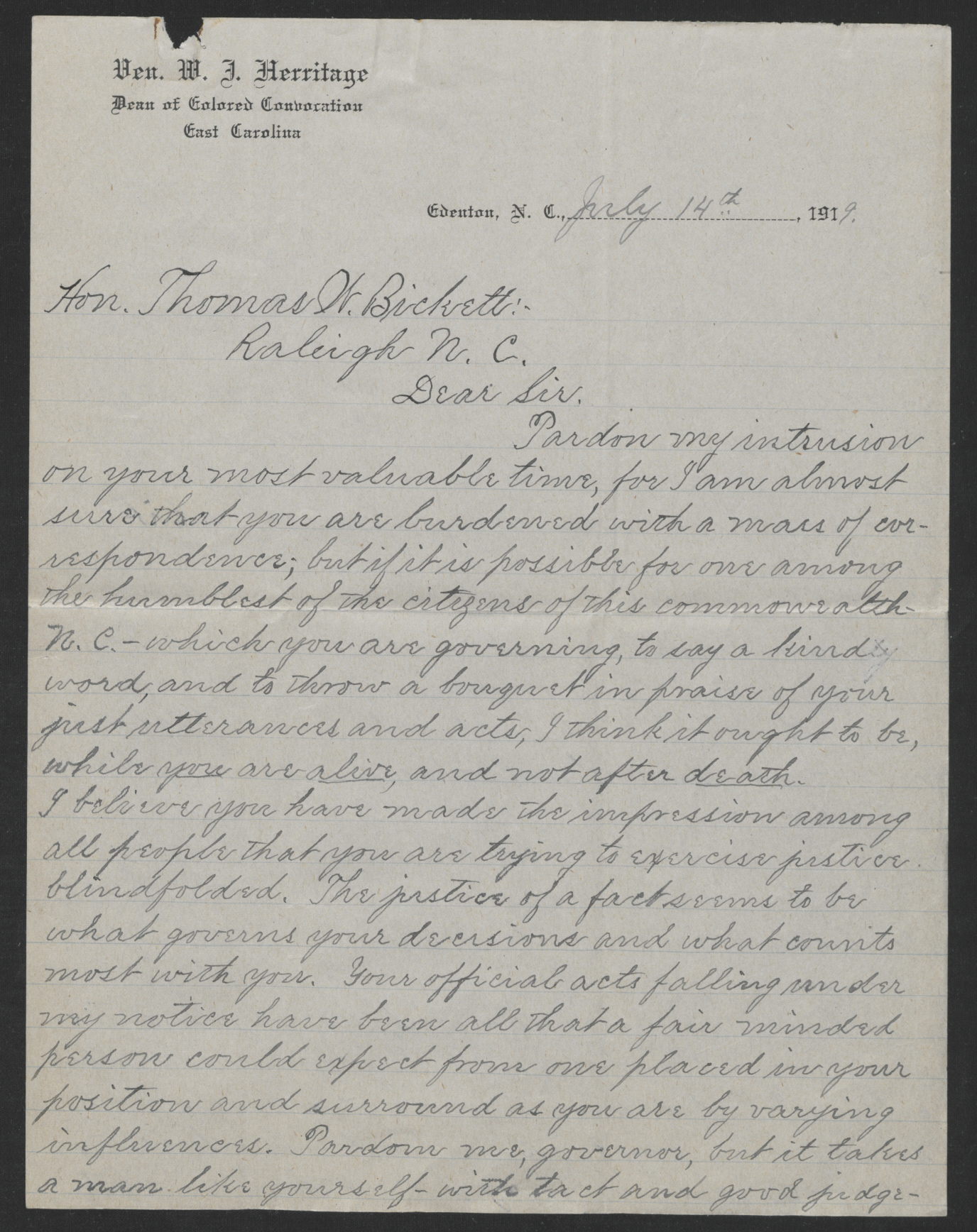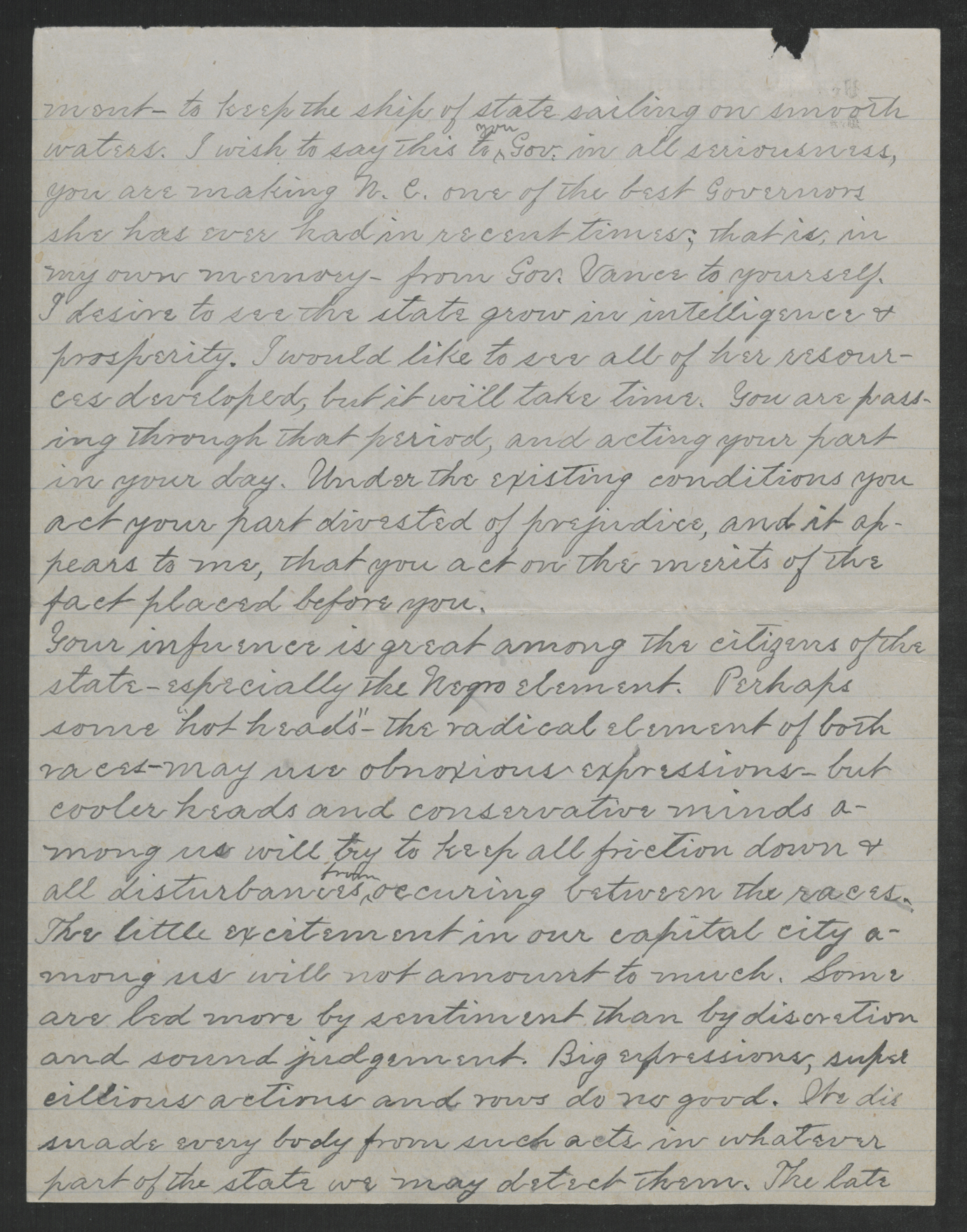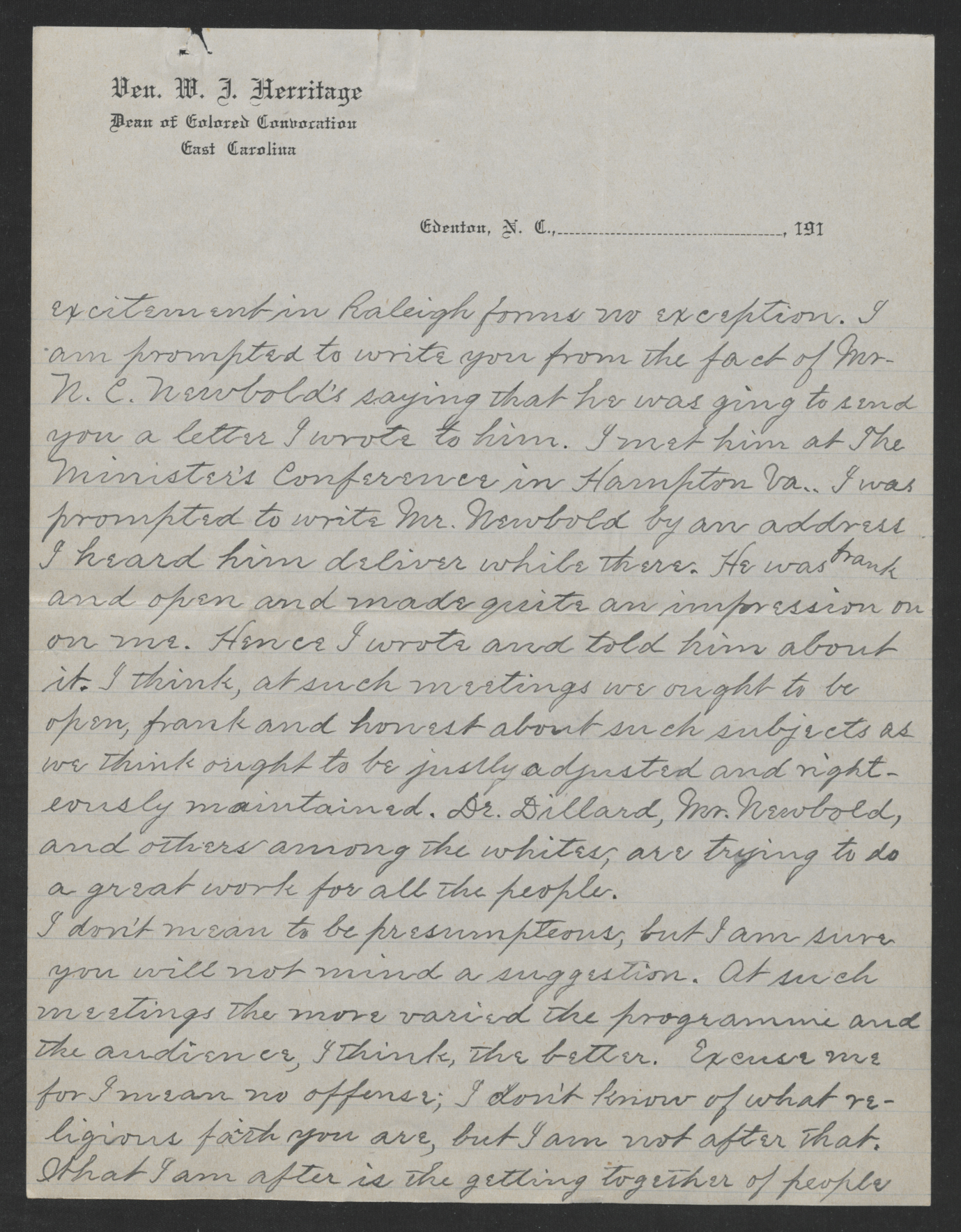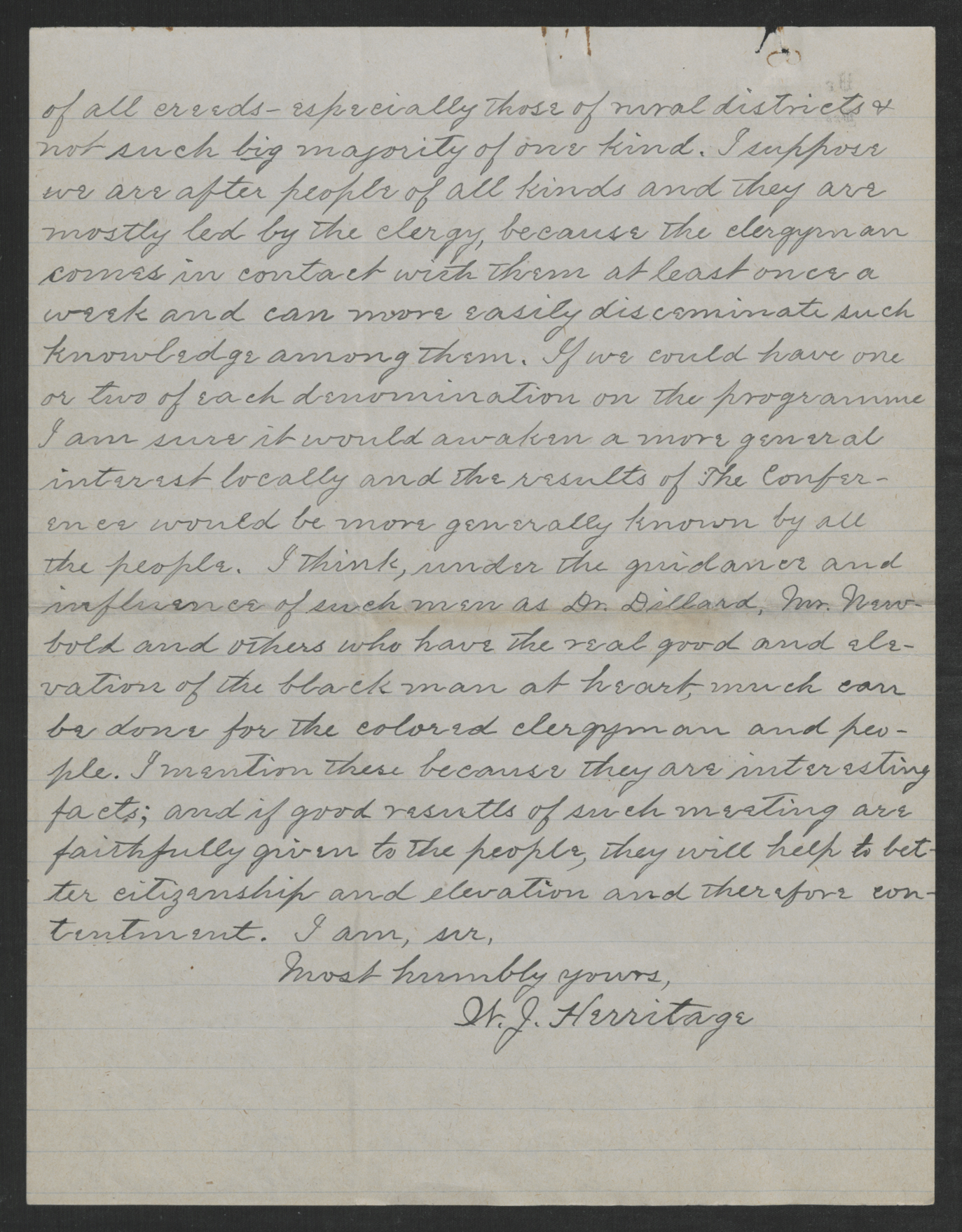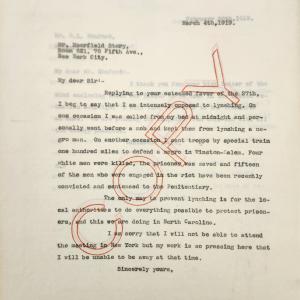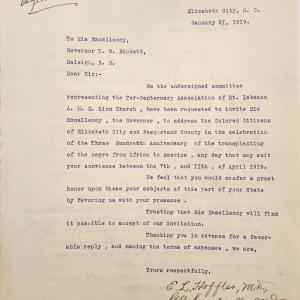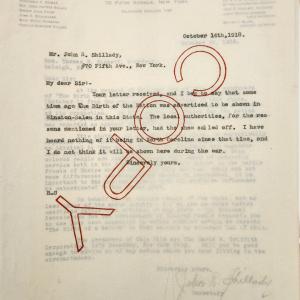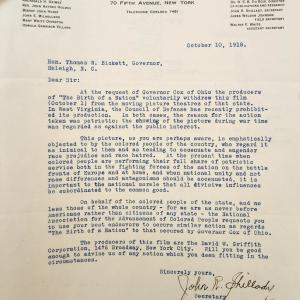Ven. W. J. Herritage
Dean of Colored Convocation
East Carolina
Edenton, N.C., July 14th, 1919.
Hon. Thomas W. Bickett:-
Raleigh, N.C.
Dear Sir,
Pardon my intrusion on your most valuable time, for I am almost sure that you are burdened with a mass of correspondence; but if it is possible for one among the humblest of the citizens of this commonwealth - N.C. - which you are governing, to say a kindly word, and to throw a banquet in praise of your just utterances and acts, I think it ought to be, while you are alive, and not after death.
I believe you have made the impression among all people that you are trying to exercise justice blindfolded. The justice of a fact seems to be what governs your decisions and what counts most with you. Your official acts falling under my notice have been all that a fair minded person could expect from one placed in your position and surround as you are by varying influences. Pardon me, governor, but it takes a man like yourself with tact and good judgement to keep the ship of state sailing on smooth waters. I wish to say this to you Gov. in all seriousness, you are making N.C. one of the best Governors she has ever had in recent times; that is, in my own memory, from Gov. Vance to yourself. I desire to see the state grow in intelligence & prosperity. I would like to see all of her resources developed, but it will take time. You are passing through that period, and acting your part in your day. Under the existing conditions you act your part divested of prejudice, and it appears to me, that you act on the merits of the fact placed before you.
Your influence is great among the citizens of the state, especially the Negro element. Perhaps some "hot heads", the radical element of both races, may use obnoxious expressions, but cooler heads and conservative minds among us will try to keep all friction down & all disturbances from occuring between the races. The little excitement in our capital city among us will not amount to much. Some are led more by sentiment than by discretion and sound judgement. Big expressions, supercillious actions and vows do no good. We dissuade every body from such acts in whatever part of the state we may detect them. The late excitement in Raleigh forms no exception. I am prompted to write you from the fact of Mr. N. C. Newbold's saying that he was ging to send you a letter I wrote to him. I met him at The Minister's Conference in Hampton Va.. I was prompted to write Mr. Newbold by an address I heard him deliver while there. He was frank and open and made quite an impression on on me. Hence I wrote and told him about it. I think, at such meetings we ought to be open, frank and honest about such subjects as we think ought to be justly adjusted and righteously maintained. Dr. Dillard, Mr. Newbold, and others among the whites, are trying to do a great work for all the people.
I don't mean to be presumpteous, but I am sure you will not mind a suggestion. At such meetings the more varied the programme and the audience, I think, the better. Excuse me for I mean no offense; I don't know of what religious faith you are, but I am not after that. What I am after is the getting together of people of all creeds, especially those of rural districts & not such big majority of one kind. I suppose we are after people of all kinds and they are mostly led by the clergy, because the clergyman comes in contact with them at least once a week and can more easily disceminate such knowledge among them. If we could have one or two of each denomination on the programme I am sure it would awaken a more general interest locally and the results of The Conference would be more generally known by all the people. I think, under the guidance and influence of such men as Dr. Dillard, Mr. Newbold and others who have the real good and elevations of the black man at heart, much can be done for the colored clergyman and people. I mention these because they are interesting facts; and if good results of such meeting are faithfully given to the people, they will help to better citizenship and elevation and therefore contentment. I am, sir,
Most humbly yours,

